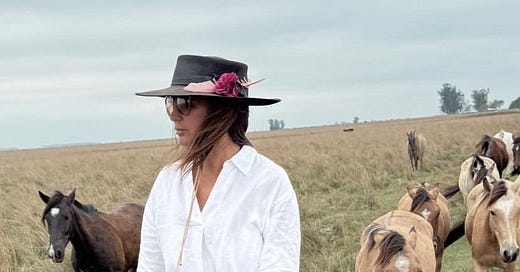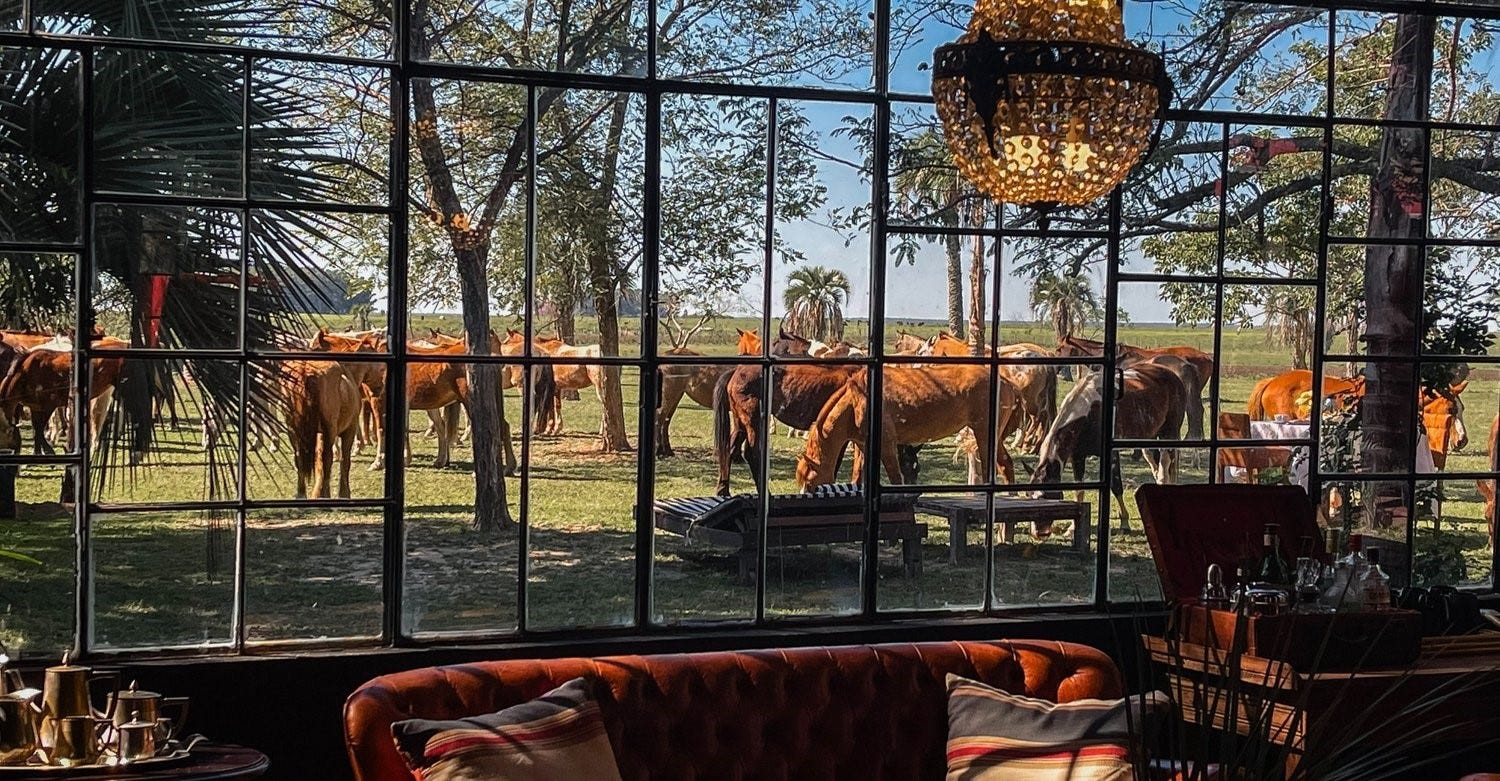Among Horses and Horizons: Finding Kinship in the Wild
Reverence for life, courage, and love at Estancia Don Joaquín
I always feel drawn to conversations that invite us to look and move beyond separation, bringing us into deeper kinship with lifeways we never imagined existed.
One such encounter was with Angie Solanet, the heart of Estancia (Spanish for ranch) Don Joaquín. Angie is a woman whose presence, like the land itself, feels both grounded and expansive, shaped by the open skies and the hundred horses that live freely across the endless fields. Together with her family, she has created a sanctuary where people from all corners of the world are drawn, not just by the beauty of this place, but by the spirit of connection it fosters.
Here, stories shared around fire-lit tables weave themselves between languages and cultures, and laughter mingles with the scent of home-cooked meals. Days unfold in the rhythm of the land—walking through wind-swept pastures, feeling the earth beneath your feet. And always, there is one thing that binds us all: a profound love for these magnificent creatures, who seem to understand our unspoken hopes and fears.
In Angie’s world, it is the shared reverence for horses that opens the door to something even deeper—a reminder of our innate connection to each other and to the natural world that sustains us.
Angie, I’d love to hear more about your story, where does your journey begin?
I was born in Buenos Aires in 1970. My grandfather, Don Joaquín, was an obstetrician. He delivered me himself. It’s a story my family loves to tell. The moment he brought me into the world, he looked at me and said, “Say hello to your grandfather” (laughs). It’s such a tender memory, even though I don’t remember it personally—it’s a beautiful way to begin life, knowing I was welcomed into the world with such love. I was an only child for a long time, which meant I was surrounded by the attention and affection of my whole family.
What was it like growing up in the '70s in Buenos Aires?
The '70s were difficult years in Argentina, marked by political unrest and uncertainty. But, as a child, I was sheltered from much of that. I was always with my parents, who were both professionals—my father was a psychiatrist and my mother a psychologist. In many ways, I grew up in a world of intellect and conversation, which was a privilege. I didn’t fully understand the gravity of the times until I was older, because, within our home, it was peaceful. I was raised with a lot of freedom—freedom of speech, freedom to express myself, and freedom to dream. Even though there were turbulent times in Argentina, inside our home, we were free. My parents encouraged conversation on any topic. It wasn’t something you saw everywhere back then.
My mother opened up the world of art to me. She would sit me down and read to me from books about the Museo del Prado, spun stories from them, or simply made up tales of her own. She also read poetry to me. My parents created this magical space for me, where I could escape into my imagination. In my room, I had a tent that became my private sanctuary—a little world of my own where stories were born. From a young age, I was writing stories, and my father would record them in a book. It was a safe and nurturing space. Looking back, it was a childhood filled with creativity and safety, for which I’m deeply grateful.
And what was life like outside that magical, safe world?
To be honest, I didn’t enjoy school. I went to an all-day school, and I didn’t like it. It was very formal, and at times it felt suffocating. But there was one gift it gave me—English. It’s what eventually helped me create Estancia Don Joaquín and connect with people from all over the world. So, in hindsight, while I didn’t enjoy those school days, I now appreciate what they gave me.
How did Estancia Joaquin come to life?
It all started when I was 27 and inherited the land from my family. But it wasn’t the kind of inheritance you could live off, so it became something I had to maintain. Around that time, my life took a sudden turn. My husband Diego and I were in a car accident on our 10th anniversary. Diego nearly lost an eye, and our car was completely destroyed. That event changed the course of our lives.
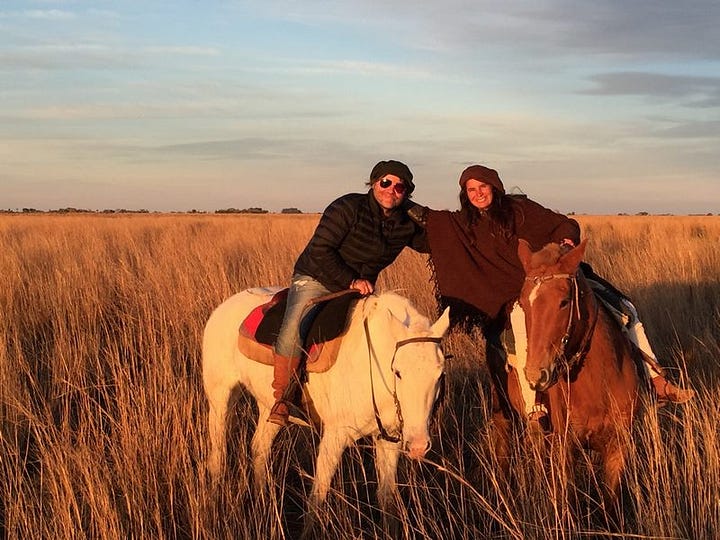
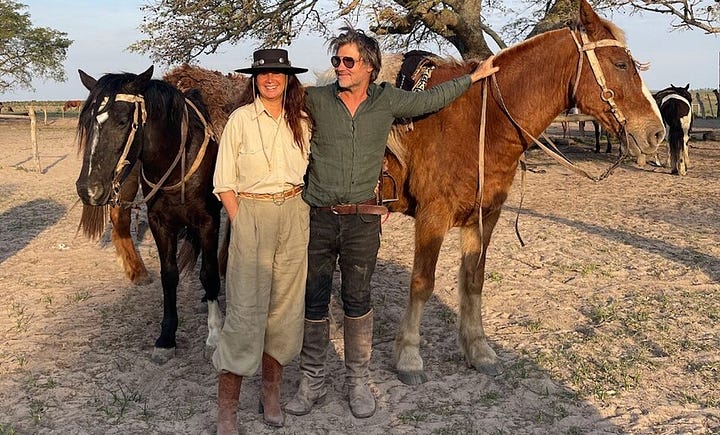
At the time, our children were in school in San Antonio de Areco, and I was working in Buenos Aires teaching relaxation techniques for people with anxiety. Diego and I were also running leather stores, working as fashion designers. We were designing belts, including those iconic Argentine leather belts with embroidery that you see everywhere now. We’d been working together since we were very young—we married when I was just 21, and we’d always been partners in life and work.
However, after the accident, our life shifted. We asked our children if they’d be open to moving to the farm. Their response was simple and touching: “If you’re happy, we’re happy.”


So, we left behind our comfortable life in a country club and moved into a small house on the farm. At first, it was just a tiny house with two rooms and one bathroom. My grandfather was still alive then, and we lived with him while we started building. Diego even sold his golf club and focused on building this home. He learned as he went—starting with the first roof.
Our entire life transformed. We started a small community here. Diego hired workers from the local area, and they became like family to us. They would play football with our kids, and after a day of work, we would all gather for barbecues. Our children were learning so much—not just how to build a house but how to build a life. It was a time of transformation for all of us, and it is where the story of Estancia Don Joaquín truly began.
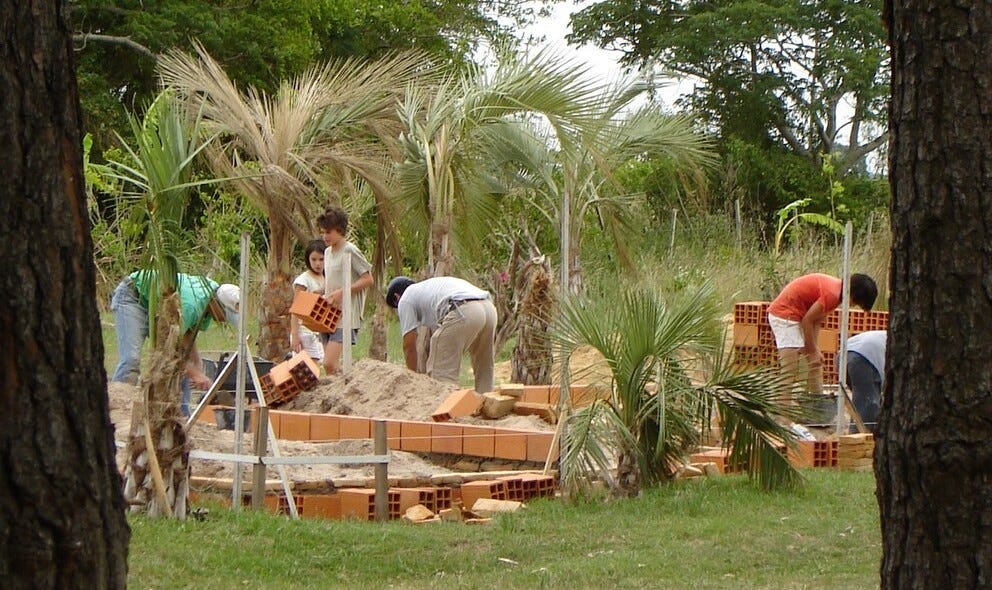
What does Estancia Don Joaquín represent to you, and what makes Estancia Joaquin so unique? It is so much more than offering a place to stay.
It is my soul. It is a place where I pour my heart into everything I do. It is not just about running a business or offering a place to stay—it is about creating a space where people can feel at home, and where they can experience generosity and connection.
For me, it is all about giving—giving the best of myself to others, whether it is in the way we treat our guests, the care we put into every detail, or the love we share with those who visit. When you give with an open heart, you receive so much more than you ever imagined in return. It doesn’t matter to whom you give; just give.
I remember how, when my boots got soaked while riding, you didn’t even hesitate—you immediately asked for my shoe size and offered me one of your own pairs.
That’s how I was raised—it is just the way my family is.
I treat people the way I want to be treated. I do this work for the people. I care about the horses, the land, and the food we prepare for our guests. But more than anything, I love seeing people come together—whether they stay for a week or a month, I want them to feel like they’ve found a home here. I find joy in watching people from all over the world connect, share stories, and laugh together. It doesn’t matter their background, religion, or country—every human story is precious. That’s my motor: to create a place where people belong.

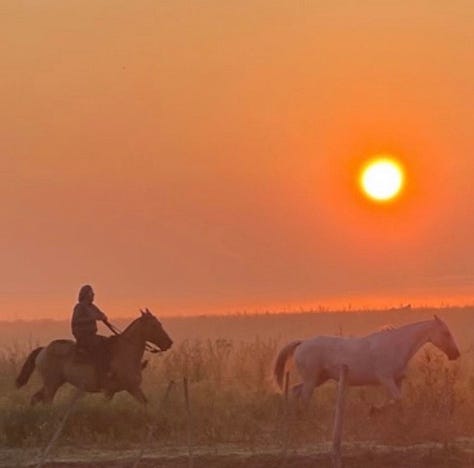
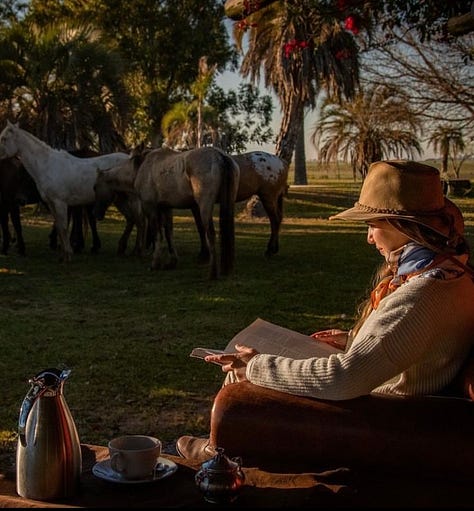
I was so moved by your writing. Could you share with our readers what inspires your words?
I write about people who suffer, who are searching for peace and love, about their struggle to find a better world. My stories are often about the human need for connection and healing.
You create that world in your poems.
Yes, in a way, I do. It is an inspiration that comes to me, especially when I am surrounded by nature. Nature has a way of healing us, its vastness reminds us of what is important; of the simplicity and beauty of life. Humans need that connection to nature—we have lost so much of it in our modern lives.
This is what I felt here—when people come to Estancia Don Joaquín, they seem to let go of overthinking and find peace.
Horseback riding is a form of walking meditation. It brings people into the present moment. At first, they are focused on the technical aspects—how to hold the reins, how to stay balanced—but soon, they start to relax and this is when the healing begins. Both from the connection with the horse and the connection with nature. It is also the conversations between different cultures that help heal the loneliness and stress people often experience in their lives.
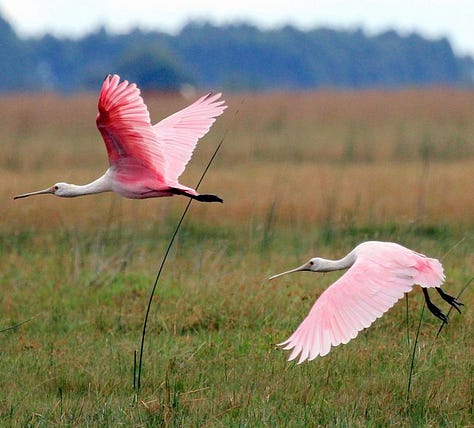


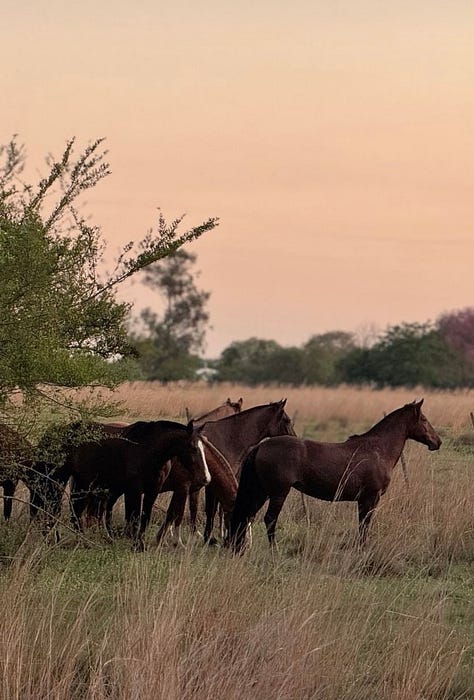
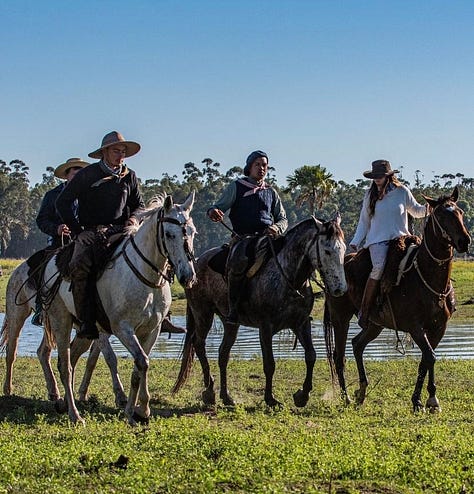

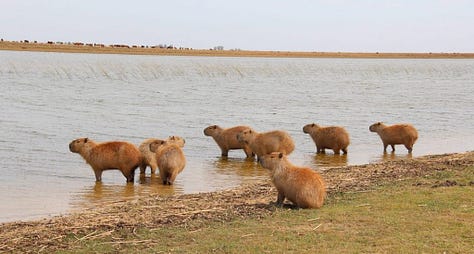
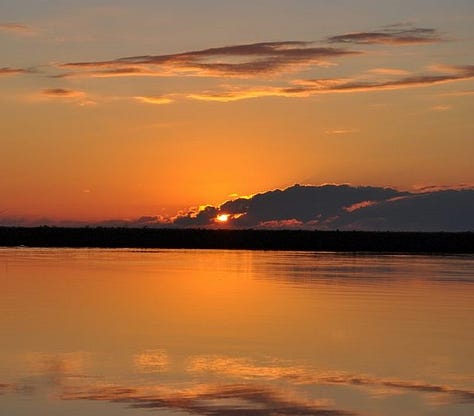
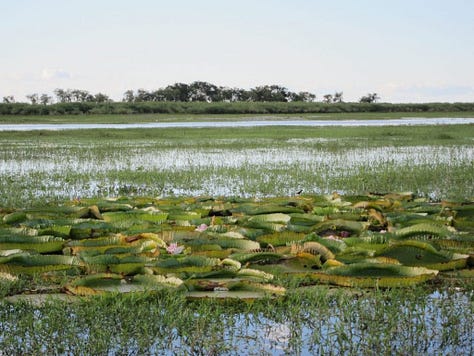
Through Hoofbeats and Horizons: My Time with the Gauchos
Angie: The gauchos are truly remarkable people. They have such pure souls, an almost spiritual quality about them that is hard to find elsewhere. Humility runs deep in their veins. If you were to visit a gaucho’s home, they might not have much—maybe just a few chairs or a handful of eggs—but whatever they have, they offer it to you without a second thought.
It’s part of their way of life, a kind of generosity that is instinctual and natural to them. They don't just give the best of what they have because they feel obliged or because they want something in return—they do it because that’s simply who they are. It’s a way of living deeply rooted in respect and simplicity.
For instance, I remember one time when my daughter Josefina mentioned to one of the gauchos, Javi, that she liked a particular horse. Without any hesitation, he said, "Keep him." Just like that. It was such a profound gesture—one that speaks volumes about their character. That’s the spirit they have—humble and generous, always willing to share what little they have.
I also recall another moment with a gaucho who no longer works with us. On his first payday, he came to us with a huge smile, carrying croissants he had bought with his hard-earned salary. It was his way of saying thank you, even though he had very little. That level of gratitude and humility is rare.
In a world that is often driven by consumerism and capitalism, where people are conditioned to accumulate more and give less, the gauchos stand in stark contrast. They are a reminder of what truly matters. They might not have traveled far or experienced life in big cities, but they know respect, generosity, and how to treat both people and animals with kindness. They have a deep respect for others, and that’s something rare in today’s world.
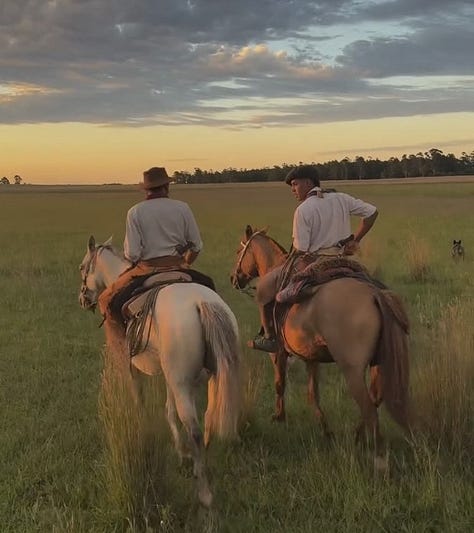

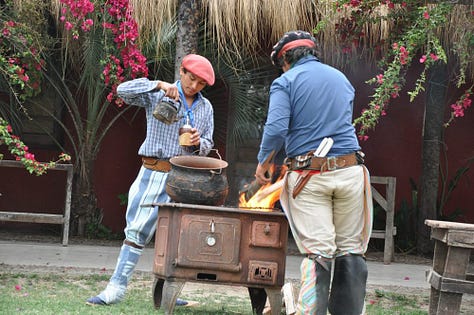
And there's something else about them, isn't there? Spending time with them, I could feel their quiet strength and humility. And a certain gentleness, especially when it comes to how they treat women.
Absolutely. There is an incredible capacity within the gauchos to care for and protect others. It is a kind of gentleness that leaves you feeling completely safe in their presence. It is not something you come across often, particularly in Argentina, where traditional views on gender can sometimes be more rigid.
This deep respect isn't something they were taught in a formal way—it is part of their upbringing, passed down through generations. Their love for their work, especially their bond with horses, also reflects this. Horses are central to gaucho life, and they treat them with immense care and pride. For the gauchos, their work isn't just a means of making a living—it is a passion, a source of dignity, and something they pour their hearts into every single day.
The gauchos’ way of life is shaped by values that transcend the material world. Their pride in their work, their connection to nature, and their humility create an environment where everyone—whether gaucho or guest—feels part of something greater. Their wisdom and their ability to live generously with what little they have is something truly special. It's a kind of education that you don’t get from books or universities but from the soul and the land.
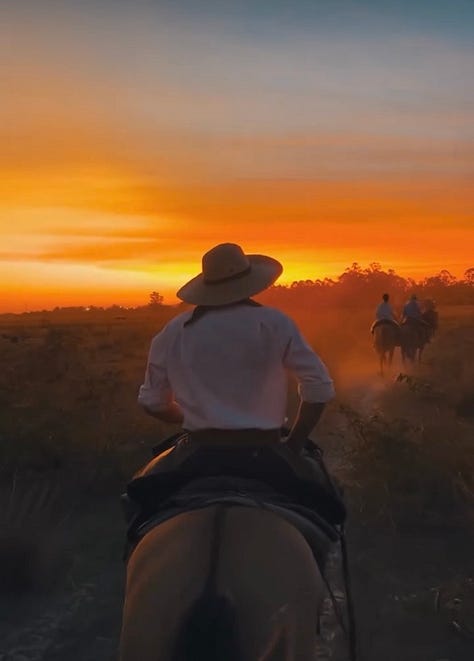

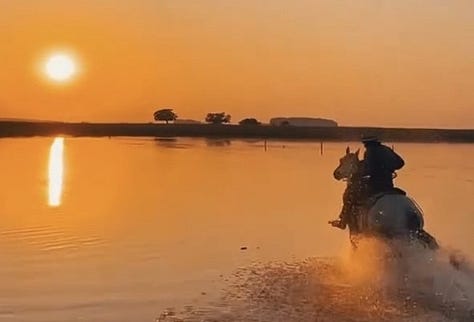
If you could take something from this world—the qualities of the gauchos—and bring it to the rest of the world, what would it be?
I would bring their sense of humility and the dignity that comes from meaningful work. So many people in the world today measure their worth by what they own or how much they earn. But for the gauchos, dignity comes from doing work that is honest and rooted in the land. It doesn’t matter if they didn’t go to university or if they don’t have formal education—what matters is that they have skills, pride in what they do, and a desire to live a good life.
In my dreams, I hope for a world where everyone can find dignity in their work, no matter what it is. If you don’t have access to higher education, it shouldn't mean you are left without opportunities. Skills can be learned, whether it is how to cook, how to ride horses, or how to care for guests. I have seen it here on the farm—girls who didn’t know how to cook, learned, and now they have jobs that give them pride and independence. That’s the beauty of this way of life. It’s not about accumulating things; it’s about fostering a sense of community, respect, and the belief that everyone has something valuable to offer.

